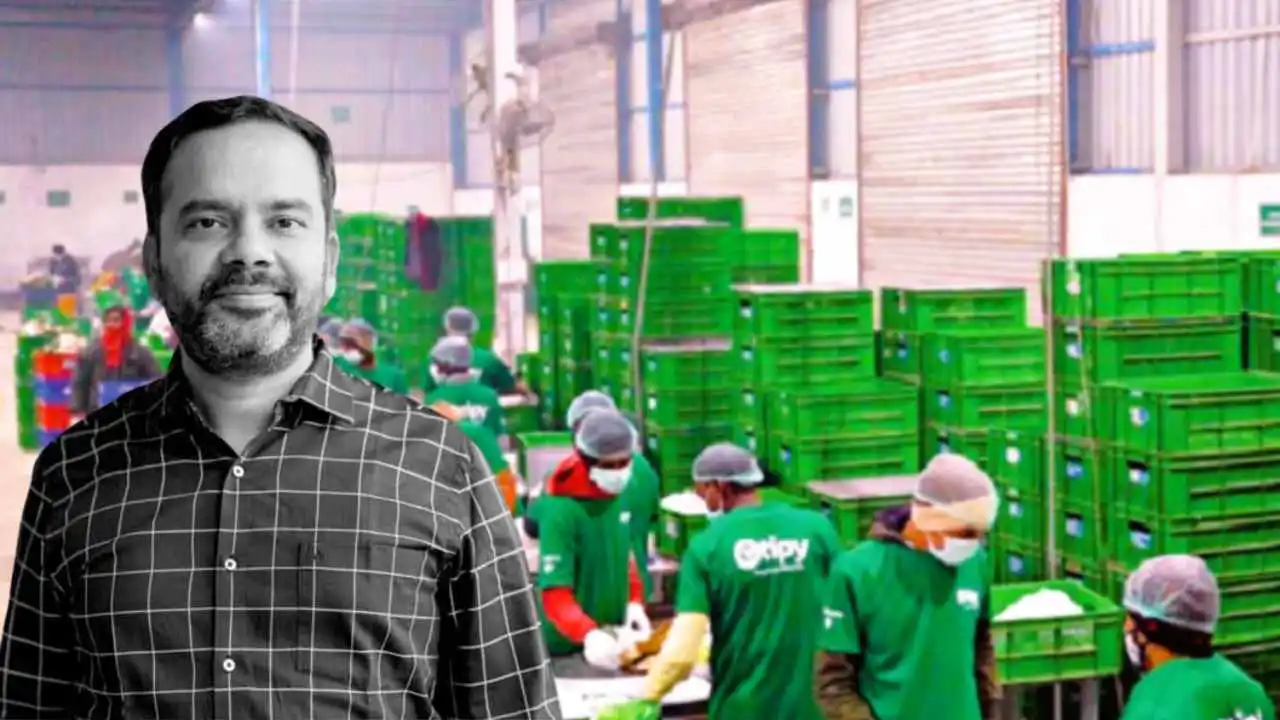Delhi-NCR based subscription grocery startup Otipy has abruptly ceased operations as of May 17, 2025, leaving around 300 employees, gig workers, and delivery partners affected. This closure highlights the growing challenges faced by subscription-based grocery models in India, especially with the rapid rise of quick commerce platforms.
Otipy’s Sudden Shutdown: What Happened?
Otipy’s cofounder and CEO Varun Khurana informed employees during a town hall meeting that the startup could no longer continue its business operations and advised them to seek alternative employment opportunities. The company has reportedly withheld salaries for over one and a half months and delayed payments to vendors, creating financial distress among its workforce and partners. Efforts to raise fresh funding, including a planned $10 million extended Series B round, did not materialize, forcing the company to wind down gradually.
About Otipy: The Farm-to-Fork Grocery Model
Founded in June 2020 as a subsidiary of Khurana’s agritech firm Crofarm India, Otipy operated as a business-to-business-to-consumer (B2B2C) platform. It connected farmers directly to consumers through a network of community resellers who managed last-mile delivery of fresh fruits and vegetables primarily in Delhi-NCR and Mumbai. The startup had shown promising growth, with revenues rising from Rs 115 crore in FY23 to Rs 164 crore in FY24, reflecting a 43% increase. Despite this, losses persisted, though reduced by 28% to Rs 52 crore in FY24.
Why Did Otipy Fail? The Rise of Quick Commerce and Market Shifts
The closure of Otipy underscores the difficulties faced by the grocery subscription model amid the explosive growth of quick commerce (q-commerce) platforms. These platforms offer ultra-fast delivery, often within 10 minutes, reshaping consumer expectations and eating into the market share of subscription services and traditional kirana stores.
Quick commerce now accounts for 70-75% of total e-grocery orders, a sharp jump from approximately 35% in 2022, according to industry reports. This rapid shift has intensified competition and forced startups to innovate aggressively.
Subscription services like BBdaily by BigBasket have merged into their parent apps due to declining standalone viability, while others like Country Delight continue operating with a daily subscription model focusing on fresh essentials.
The quick commerce segment’s growth from $300 million in FY22 to $7.1 billion in FY25 highlights the scale of disruption faced by traditional and subscription-based grocery businesses.
Impact on Employees and Vendors
The shutdown has left many Otipy employees in limbo, with unpaid salaries and uncertain futures. Vendors have also reported delayed payments stretching back several months, with communication from management dwindling since early 2025. The startup has promised to initiate refunds for customers’ outstanding wallet balances within 60 to 90 days, but the overall sentiment remains one of disappointment and financial strain.
What’s Next for the Indian Grocery Delivery Market?
Otipy’s closure is part of a broader trend where subscription-based grocery startups struggle to compete against the convenience and speed of quick commerce. However, the market is not entirely bleak for subscription models:
Direct-to-consumer (D2C) brands like Country Delight are still thriving by focusing on daily essentials and building customer loyalty through consistent quality and service.
Quick commerce players are optimizing logistics with ‘dark stores’ and expanding product categories, which is improving profitability and operational efficiency.
Conclusion: Lessons from Otipy’s Journey
Otipy’s rise and fall illustrate the volatile nature of India’s grocery delivery market, where consumer preferences are rapidly evolving. While the farm-to-fork subscription model had potential, the inability to secure timely funding and adapt to the quick commerce wave proved fatal. For startups and investors, this signals the need to innovate faster, focus on sustainable business models, and perhaps blend subscription benefits with the speed and convenience demanded by today’s consumers.
